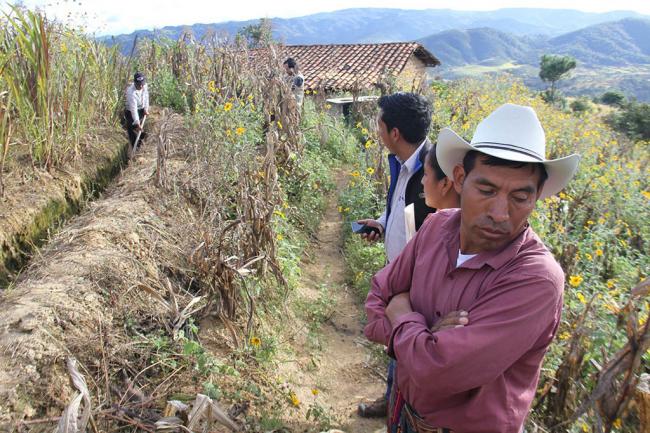
Keyword: Ghana, Ban ki Moon, President, opposition leader, defuse tensions, upcoming elections, UN
“In recent months, we have seen how bad things can be, not only for small farmers, but for the entire population living in the area,” said Ladislao Rubio, IFAD’s Country Programme Manager for Nicaragua, noting that the rise in temperatures caused by the El Niño phenomenon made agriculture almost impossible, leaving more than 3.5 million people in Central America dependent on food aid to survive.
“The only way to avoid these food crises is to build small farmers’ resilience to climate change by investing in climate-smart agriculture,” he added.
Regional falling agriculture production has led to food insecurity and particularly a decline in household incomes and has stretched rural families and indigenous people’s resilience.
With the investment, the UN agency, through the Dry Corridor Rural Family Sustainable Development Project (NICAVIDA) project, addresses the situation of Nicaraguan smallholders living in the Dry Corridor, a strip of land in which with 52 per cent of soils are overused and 40 per cent is strongly or severely eroded.
“Life in the Dry Corridor was never easy, but climate change has made things even worse and, unless we give small farmers living there the tools they need to adapt to increasingly dry and unpredictable weather, they will not be able to cope,” said Rubio.
The NICAVIDA project aims to ensure small farmers’ access to nutritious food and an adequate diet and increase their capacity for natural resource management and adaptation to climate change by promoting the links between economic diversification, productive transformation, environmental protection and family nutrition.
IFAD, together with regional partners will, among others, focus on the needs of communities in terms of infrastructure, road improvement and investments in public services that will improve the living standards of the Corridor’s rural families and indigenous peoples, and connect them to markets.
The term Dry Corridor defines a group of ecosystems in the eco-region of dry tropical forests in Central America covering the lowlands of the Pacific coastal area, and most of central pre-mountain region of El Salvador, Guatemala, Honduras, Nicaragua, and parts of Costa Rica and Panama.
The total cost of the project is $48.5 million, of which IFAD is providing $20.5 million. The other contributors are: the Central American Bank for Economic Integration ($15 million), the Government of Nicaragua ($6 million) and the beneficiaries themselves ($7 million).
About 191,380 households benefit from IFAD’s involvement in the Central American country, and the NICAVIDA project is one of the agency’s three ongoing operations. IFAD also sponsors the Agricultural, Fishery and Forestry Productive Systems Development Programme project in North Atlantic Autonomous Region and South Atlantic Autonomous Region Indigenous Territories as well as Adapting to Markets and Climate Change Project.
Photo: FAO
Source: www.justearthnews.com
Support Our Journalism
We cannot do without you.. your contribution supports unbiased journalism
IBNS is not driven by any ism- not wokeism, not racism, not skewed secularism, not hyper right-wing or left liberal ideals, nor by any hardline religious beliefs or hyper nationalism. We want to serve you good old objective news, as they are. We do not judge or preach. We let people decide for themselves. We only try to present factual and well-sourced news.







